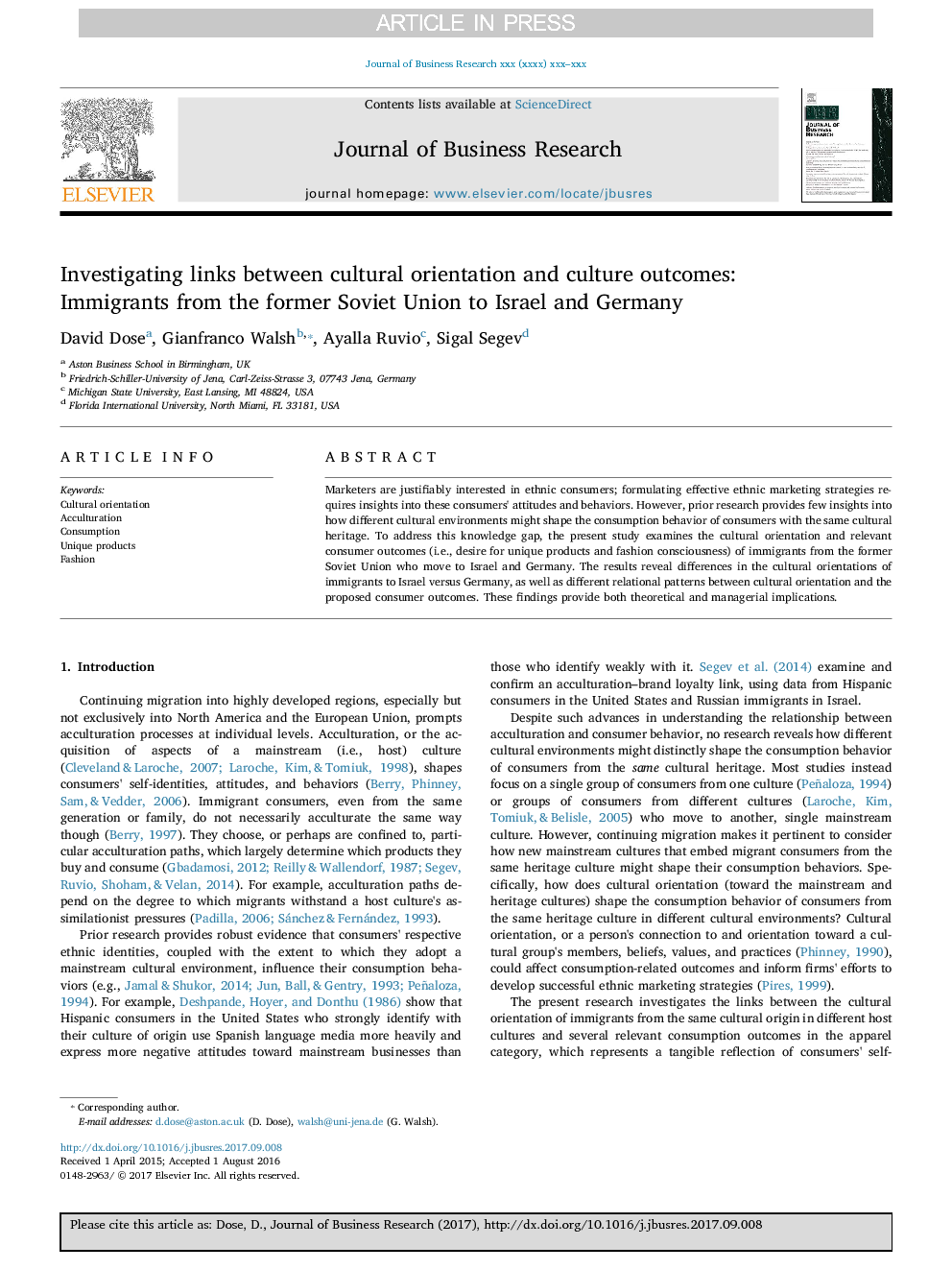ترجمه فارسی عنوان مقاله
بررسی ارتباط بین گرایش فرهنگی و نتایج فرهنگی: مهاجران از اتحاد جماهیر شوروی سابق به اسرائیل و آلمان
عنوان انگلیسی
Investigating links between cultural orientation and culture outcomes: Immigrants from the former Soviet Union to Israel and Germany
| کد مقاله | سال انتشار | تعداد صفحات مقاله انگلیسی |
|---|---|---|
| 85843 | 2018 | 9 صفحه PDF |
منبع

Publisher : Elsevier - Science Direct (الزویر - ساینس دایرکت)
Journal : Journal of Business Research, Volume 82, January 2018, Pages 281-289
ترجمه چکیده
بازاریابان به طور قانونی به مصرف کنندگان قومی علاقه مند هستند. فرمولبندی راهبردهای موثر قومی بازاریابی نیازمند درک نگرشها و رفتارهای مصرف کننده است. با این حال، تحقیقات پیشین چند اندیشه را در مورد اینکه چگونه محیط های فرهنگی مختلف ممکن است رفتار مصرف مصرف کنندگان با همان میراث فرهنگی را شکل دهد، فراهم می کند. برای رسیدگی به این شکاف دانش، پژوهش حاضر به بررسی گرایش های فرهنگی و نتایج مربوط به مصرف کنندگان (یعنی میل به محصولات منحصر به فرد و آگاهی مد) از مهاجران از اتحاد جماهیر شوروی سابق که به اسرائیل و آلمان می روند، بررسی می شود. نتایج نشان می دهد تفاوت در جهت گیری های فرهنگی مهاجران به اسرائیل در مقابل آلمان، و همچنین الگوهای مختلف ارتباطی بین گرایش های فرهنگی و نتایج مصرف کنندگان پیشنهاد شده است. این یافته ها، پیامدهای نظری و مدیریتی را ارائه می دهد.

